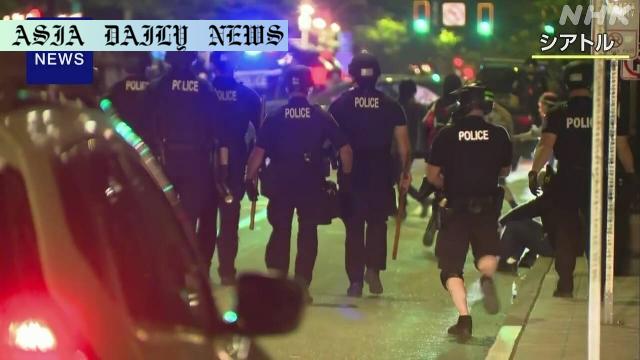Protests erupt in Washington State and Los Angeles following ICE raids, leading to curfews and National Guard deployment.

ICE Raids Spark Protests Across the US
Immigration and Customs Enforcement (ICE) workplace raids have triggered widespread protests across various US states, especially in Washington and California. On Wednesday, ICE agents conducted searches at workplaces, focusing on undocumented immigrants employed there. This unleashed protests in key cities, with Spokane, Washington, and Los Angeles, California, emerging as epicenters of mass demonstrations. These protests reflect the mounting tension surrounding immigration policies and enforcement in the US.
Curfew Declared in Spokane, Washington
In Spokane, a significant number of demonstrators gathered in downtown areas to protest the ICE raids. Reports indicate over 30 arrests were made as clashes between law enforcement and protesters escalated. In response to the increasing unrest, local authorities declared a state of emergency and implemented a curfew to maintain order. The imposed curfew primarily affects busy zones where protesters gathered in large numbers, aiming to curtail the potential for escalation.
Heightened Tensions and Military Deployment in Los Angeles
While Spokane struggles to regain control, Los Angeles exhibits similar unrest but on a larger scale. Federal government buildings in downtown Los Angeles have become focal points for protesters against the recent immigration raids. The tense situation prompted President Donald Trump to authorize the deployment of 4,000 National Guard troops to the area. Additionally, officials have announced that 700 Marines will bolster military efforts within 48 hours.
Criticism from State and Local Leaders
The deployment of National Guard troops has sparked significant criticism from California Governor Gavin Newsom and Los Angeles Mayor Karen Bass. Both leaders argue the military presence has exacerbated growing tensions rather than diffusing them, raising concerns over the long-term implications of such forceful intervention. Community groups and legal entities have echoed similar sentiments, advocating for strategic, peaceful solutions that address the root causes of unrest without invoking military measures.
Larger Implications for Immigration Policy
The current wave of protests sheds light on the contentious debate around immigration enforcement in the United States. Critics have long argued that ICE workplace raids unfairly target vulnerable populations, separating families and destabilizing communities. Advocates for stricter immigration enforcement emphasize the importance of upholding the rule of law and preventing illegal employment practices. Regardless, the current turmoil suggests a disconnect between public sentiment and federal immigration enforcement measures.
What Comes Next?
As curfews are enforced and military presence intensifies, many question the sustainability of existing strategies to resolve the situation. Dialogue between policymakers, law enforcement, and affected communities will be essential to finding a path forward. The implications of these protests transcend beyond individual communities, as they point to deeper fractures within the country on issues of immigration, federal authority, and civil rights.
Commentary
Understanding the Public Frustration
The escalation of protests in response to ICE workplace raids is not an isolated incident; it reflects a broader frustration with immigration policies in the United States. Many Americans are increasingly vocal about their discontent with strategies that seem to lack humanity and compassion. These protests symbolize not just opposition to ICE’s methods but also a demand for systemic change in how immigration is managed.
The Role of the Military
The deployment of the National Guard to Los Angeles underlines the severity of the situation, but it also raises important questions. Is deploying the military a proportional response to civil protests? Historically, such measures have led to mixed outcomes, sometimes calming situations but often exacerbating the discontent of protesters. The criticism by local leaders like Governor Gavin Newsom and Mayor Karen Bass highlights the delicate balance between maintaining public order and respecting the right to peaceful demonstration.
Looking Forward
The protests reveal the necessity for a deeper examination of the United States’ approach to immigration enforcement. There is a need for policies that prioritize both security and human dignity. Building trust between communities and federal bodies will be key to ensuring that public protests do not escalate into prolonged unrest. Solutions must include dialogue, reform, and empathy if we are to move forward as a unified society.


